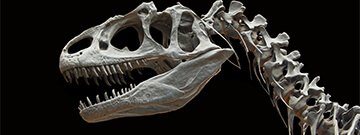
Epidemiologists – The Disease Detectives
If you’ve heard of the Flu Epidemic, you’re looking at the diseases that epidemiologists study. The study of infectious diseases is the focus of the medical specialty of epidemiology. A vital part of epidemiology is analyzing groups of people who have been exposed to something in the environment to see if they have been impacted by this exposure. The work of epidemiologists is also crucial to pandemics, like COVID-19.
There is a difference between doctors and epidemiologists. A doctor concentrates on the health of an individual, but an epidemiologist focuses on the health of a group of people. This is the major distinction between a doctor and an epidemiologist. Pandemics and epidemics are both studied in epidemiology. Epidemics typically impact a large number of individuals all in a similar location. A pandemic is when a disease affects a large population across several different countries or continents.
Epidemiologists conduct a great deal of laboratory research and data collection. They want to figure out how to stop the outbreak. They monitor drugs like vaccines and research their efficiency. When looking at a new outbreak, they are concerned about two main things: frequency and pattern.
Frequency is the relationship between a population’s size and the number of health events, such as the quantity of cases of meningitis or diabetes, that occur in a community. Epidemiologists can compare disease occurrence in various populations using this rate.
Pattern is the frequency of health-related occurrences by person, place, and time. Time patterns might be hourly, daily, weekly, monthly, or any other division of time that may affect the likelihood of contracting an illness. Geographic variance and the location of workplaces or schools are only a few examples of place patterns. Personal characteristics include demographics like age, gender, marital status, and financial level that may be linked to risk of disease, injury, or disability, as well as behaviors and environmental exposures.
In the end, we need epidemiologists to make sense of the world around us. They make predictions about diseases and come up with effective ways to prevent them. They continue to be crucial to the de-escalation of the COVID-19 pandemic. If you enjoy figuring out mysteries, maybe this “disease detective” career is right for you!
Source:
“Principles of Epidemiology.” ![]() Centers for Disease Control and Prevention, Centers for Disease Control and Prevention, 18 May 2012.
Centers for Disease Control and Prevention, Centers for Disease Control and Prevention, 18 May 2012.
“What Is Epidemiology?” ![]() Centers for Disease Control and Prevention, Centers for Disease Control and Prevention, 17 June 2016.
Centers for Disease Control and Prevention, Centers for Disease Control and Prevention, 17 June 2016.
Scientific Peer Review by Alysia Mandato
Aneri Shethji:
Aneri Shethji is a 10th grader at North Allegheny Intermediate High School. She is very passionate about science and writing and enjoys getting involved with the community. In her free time, Aneri spends time with friends and family and loves getting outside. She can’t wait to learn more about all that science has to offer, and help others learn it too!

On April 8, 2024, we will witness a mesmerizing event. A total solar eclipse is upon us, and here at the Science Center, we can explore this celestial phenomenon in many ways.
But first, what is this event? A ...

Climate change is a big deal. We’ve all seen news stories about greenhouse gas emissions, rising temperatures, and the hole in our ozone layer. However, what tends to sometimes be overlooked is climate change’s ...

In the captivating world of health care, a fascinating transformation is taking place—a rise in Artificial Intelligence, or AI! Picture a world where smart machines team up with doctors to revolutionize medicine, making ...

Hydroponics, a contemporary farming method, redefines how we grow plants, offering a fresh approach to cultivating crops that differs from traditional soil-based farming. This innovative technique doesn’t rely on soil ...

In our solar system, the eight planets—Mercury, Venus, Earth, Mars, Jupiter, Saturn, Uranus, and Neptune—are talked about more than anything. While the ...

Quantum computers are on the forefront of technological advancement. These machines, unlike any traditional computers you’re familiar with, harness the ...

The Earth is a spectacle of constant movement. Periodically, it commands our attention with displays of power—earthquakes. These events are tied to the intricate movements of the Earth's tectonic plates. Tectonic ...

Have you ever wondered how investigators in crime shows manage to identify suspects with such accuracy? Dusting for fingerprints isn’t always feasible in many cases, so the true answer lies in a different type of ...

Writers: Evan Allen, Ricardo Aguilar, Jillian Pensenstadler, Amelia Foley, and Ian Lisien
Once a center of industrial prowess, Pittsburgh has undergone a remarkable transformation, ...

Have you ever questioned what happens to the food you consume? Prepare yourself for a thrilling voyage as we go through your digestive system! We'll look at ...

When someone falls on their arm, they immediately head to the hospital to see if it is hurt. X-rays are used by doctors to examine your bones more ...

Even though dinosaurs became extinct about 65 million years ago, we know quite a bit about them, including what they ate, where they lived, and even what ...



